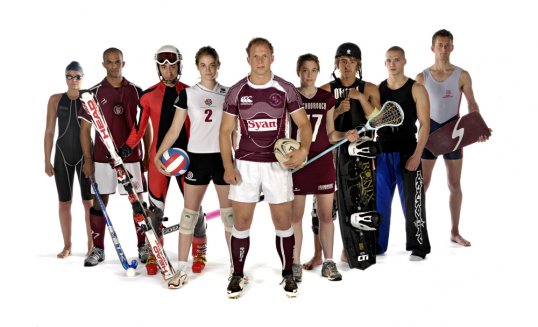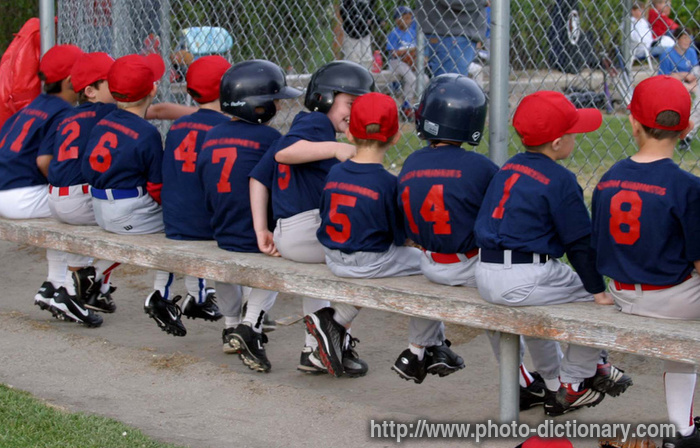I grew up in Santa Clara, in the heart of Silicon Valley. At that time, Santa Clara had three claims to fame: the Santa Clara Mission, Santa Clara University and the Santa Clara Swim Club. The Santa Clara Swim Club has 80 Olympic medalists, including 59 gold medals. One of those, winner of gold and silver medals from the 1972 Olympics, was my classmate Tom Bruce. Tom might well have won even more if not for his teammate and fellow Santa Clara swimmer, a fellow you may have heard of, Mark Spitz.
Public and private sports clubs have been the place for sports all over the world. In Germany, there are 91,000 sports clubs with 178,000 teams. One in every three Germans (of any age) are part of one of these clubs. One of these is the new FIFA World Cup champion. Throughout Europe, sports are a big part of community life, with sports clubs organized by town, workplace, church or neighborhood. In Argentina, Brazil, South Korea and Australia, independent sports clubs or civic groups organize youth sports. This is by far the model of most of the world. Soccer, rugby, baseball, basketball and dozens of other sport teams practice, play and compete as community or private organizations.
My kids grew up playing Little League and Youth Soccer with neighborhood coaches and lots of parental involvement. By high school though, those
opportunities were gone, replaced by school teams. My son, a talented tennis player, had six different tennis coaches in his four years of high school, none of them knowledgeable or passionate about tennis. He did okay but how much better with a trained coach? He played basketball too, though "played" might be a stretch since he spent most of his time on the bench. You see, high school sports have become elitist. They're not for everyone and kids are cut from teams or excluded from the field every season at every school.
Only in the US and a small handful of other countries are sports the responsibility of secondary schools. We pay a cost for this -- in the quality of coaching, in hiring teachers for reasons other than their teaching, in students missing class for games, in distractions from academics and in daily miscommunication about the purpose of education.
The Atlantic magazine published an excellent piece in October about how our fixation with school sports affects learning. Given international test scores that show American students performing well in elementary and middle schools, then dropping off in high schools, the author wonders why this unique American institution isn't being examined. A similar piece in the New Yorker raised many of the same questions.
There are parent groups, parks, cities, YMCAs and other organizations already interested in providing youth athletic opportunities. The facilities may have been built on school campuses, but team organization and management doesn't have to be a school function. If the YMCA wants to organize basketball teams and Pop Warner wants to manage football, why shouldn't they?
At my high school in the late sixties, we still all turned out for the football games on Friday nights. But our real athletes were in the pool -- not because of Peterson High's coaches, but because they were coached at the Santa Clara Swim Club. If you believe that sports -- especially competitive sports -- matters, why would you want moonlighting history teachers in charge of it?
Public and private sports clubs have been the place for sports all over the world. In Germany, there are 91,000 sports clubs with 178,000 teams. One in every three Germans (of any age) are part of one of these clubs. One of these is the new FIFA World Cup champion. Throughout Europe, sports are a big part of community life, with sports clubs organized by town, workplace, church or neighborhood. In Argentina, Brazil, South Korea and Australia, independent sports clubs or civic groups organize youth sports. This is by far the model of most of the world. Soccer, rugby, baseball, basketball and dozens of other sport teams practice, play and compete as community or private organizations.
My kids grew up playing Little League and Youth Soccer with neighborhood coaches and lots of parental involvement. By high school though, those
opportunities were gone, replaced by school teams. My son, a talented tennis player, had six different tennis coaches in his four years of high school, none of them knowledgeable or passionate about tennis. He did okay but how much better with a trained coach? He played basketball too, though "played" might be a stretch since he spent most of his time on the bench. You see, high school sports have become elitist. They're not for everyone and kids are cut from teams or excluded from the field every season at every school.
Only in the US and a small handful of other countries are sports the responsibility of secondary schools. We pay a cost for this -- in the quality of coaching, in hiring teachers for reasons other than their teaching, in students missing class for games, in distractions from academics and in daily miscommunication about the purpose of education.
The Atlantic magazine published an excellent piece in October about how our fixation with school sports affects learning. Given international test scores that show American students performing well in elementary and middle schools, then dropping off in high schools, the author wonders why this unique American institution isn't being examined. A similar piece in the New Yorker raised many of the same questions.
There are parent groups, parks, cities, YMCAs and other organizations already interested in providing youth athletic opportunities. The facilities may have been built on school campuses, but team organization and management doesn't have to be a school function. If the YMCA wants to organize basketball teams and Pop Warner wants to manage football, why shouldn't they?
At my high school in the late sixties, we still all turned out for the football games on Friday nights. But our real athletes were in the pool -- not because of Peterson High's coaches, but because they were coached at the Santa Clara Swim Club. If you believe that sports -- especially competitive sports -- matters, why would you want moonlighting history teachers in charge of it?
See also: Should Teachers Coach too?


Comments
Post a Comment
I'm interested in your comments.